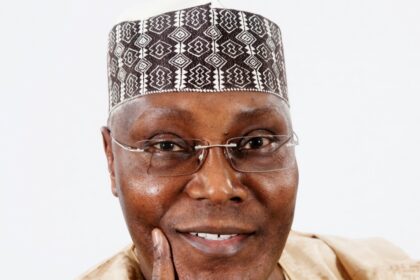The candidate of the All Progressives Congress, Rotimi Akeredolu, in the wee hours of Sunday surged into an early lead as the Independent National Electoral Commission announced election results in some local government areas.
The LGA results announced by the electoral body included those of Ile Oluji/Oke Igbo, Akoko North-East, Ifedore and Irele, where Akeredolu coasted home to victory just as the candidate of the Peoples Democratic Party, Eyitayo Jegede, won in Ondo-East LGA.
The candidate of the Alliance for Democracy, Olusola Oke, closely trailed Jegede in the five LGAs.
Despite the tension that characterised the countdown to the Ondo governorship poll, the election, which went under way on Saturday without any major violence, was, however, marked by massive vote buying.
Most of the major actors in the race complained that voters were heavily induced by politicians, who stormed polling booths with bags of money to openly buy votes.
The election recorded a remarkable turnout in the three senatorial districts of the state.
It was gathered that about N450,000 was budgeted for each polling unit by the major political parties with each voter getting between N3,000 and N5,000.
Ondo State Governor, Dr. Olusegun Mimiko, told one of our correspondents covering the election that anarchy ruled in the state as votes were publicly bought.
He accused the All Progressives Congress of perpetrating massive electoral fraud by giving money to voters in exchange for votes.
He said, “What is happening in Ondo State presently is anarchy. The APC and INEC are trying to rig the poll with the use of malfunctioning card readers and inducement of voters.”
Elder statesman, Chief Olu Falae, described the act of vote buying during the election as a worrying development even as he accused security men and the officials of the Independent National Electoral Commission of complicity.
“I have heard of people bribing voters in Akure here. I have heard they are offering N3,000 per vote. It is very worrisome. This is a way of comprising the will of the people.
“It is for the government of the day to make a decision to stop this trend. There were many police officers in those polling units, what were they doing? They could arrest them but they didn’t do that. Without the collusion of the electoral officers and the security agents, that (inducement of voters) can’t succeed,” Falae said.
Apart from the brazen monetary inducement of voters during the election, the failure of card readers in some polling units triggered questions about the preparedness of INEC for the election.
The All Progressives Congress candidate in the election, Rotimi Akeredolu, expressed worry over the situation, saying that INEC had enough time to prepare.
Akeredolu said, “There are a few hitches here and there which have to do with the failure of the card readers at some polling units. I expect INEC to have properly overhauled the card readers because we are having only one election.”
There was a mixed reaction to the exercise by stakeholders in the state.
Condemnation continued to trail the exercise as the Peoples Democratic Party candidate, Mr. Eyitayo Jegede (SAN), alleged that INEC conspired to rig the election by disenfranchising voters in PDP strongholds by deliberately using malfunctioning card readers.
Ondo State Resident Electoral Commissioner, Mr. Segun Agbaje, however, said the machines were working at every polling booth. He said those who made the allegations were trying to cause confusion.
He said, “There is no booth where election didn’t take place because of the card reader; it only delayed the process a little bit. In the 3,009 polling units, the units I was told that they had problems with card readers were not up to seven. Politicians are just making noise to cause unnecessary confusion. There is no place in the entire state where election did not hold because of the card reader, it was only delayed.”
On the issue of inadequate security at polling units, the Police Public Relations Officer, Ondo State Command, Mr. Femi Joseph, said there were five policemen manning each polling units, but added that some of them were not in police uniform.
“Our men were at every polling unit; it is only that people saw the ones in uniform. There were some officers who were in mufti, and we did that deliberately. Five policemen were posted to each polling unit although not every five policemen deployed wore uniforms,” Joseph explained.



